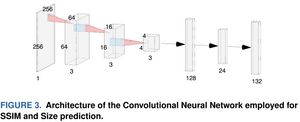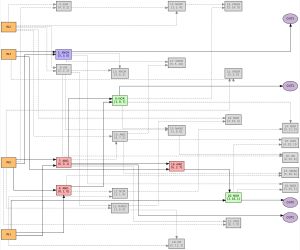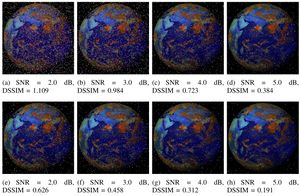
Hi!
I'm a researcher at IIIT-B working at the intersection of AI and a diverse set of domains. Currently, I'm developing NN based QAM demodulators, new CGP techniques for electronic circuit evolution, and working on computational Genomics. You can read about my latest research on this page.
SIGNETS: Neural Network Architectures for m-QAM demodulation

Neural networks are used to improve QAM demodulation under complex channel conditions, achieving high accuracy (~99.66%) with low computational cost. A Pareto-optimal CNN is found via architecture search, and an efficient FPGA implementation is demonstrated with real-world validation. Accepted at IEEE Access.
AdaptDCT: A Deep Learning-Guided Multi-Scale DCT Compression Framework for Edge Devices

An adaptive image compression method that combines multi-scale DCTs with CNNs. AdaptDCT dynamically chooses DCT block sizes based on image content—larger blocks for uniform areas, smaller for detailed regions. A CNN predicts compression quality (SSIM) and file size to optimize parameters efficiently. Tested on Google's Coral Edge TPU, the method outperforms standard JPEG with better quality at smaller file sizes. In review at IEEE Access.

GE-CGP: Gene Epitaxy based Cartesian Genetic Programming

Cartesian Genetic Programming is a method to automatically create programs or electronic circuits with a certain behaviour. The method is similar to how organisms evolve, and is very computationally expensive for complex circuits. I'm developing a new technique that significantly reduces the computational cost and time-to-solution. In development.
CosinePrism: An Unequal Error Protection Scheme for Progressive Image Transmission Over Half-Duplex Channels
An Unequal Error Protection (UEP) method tailored for low-power, resource-constrained systems. By blending color theory with lossy compression strategies, CosinePrism smartly allocates error correction to preserve image quality where it matters most.
Designed for half-duplex links, it supports progressive delivery of both RGB and grayscale images, with an optional JPEG re-compression mode. CosinePrism matches JPEG in file-size while improving DSSIM by 55.5% over standard Equal Error Protection. Presented at SPCOMM 2024.

DSSIM-SNR comparision for JPEG (above) and CosinePrism (below). Lower is better.